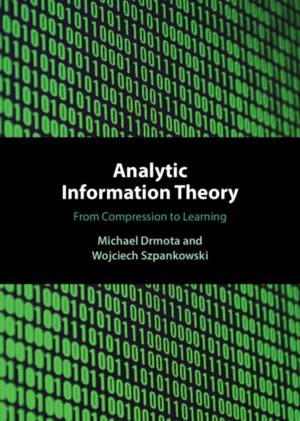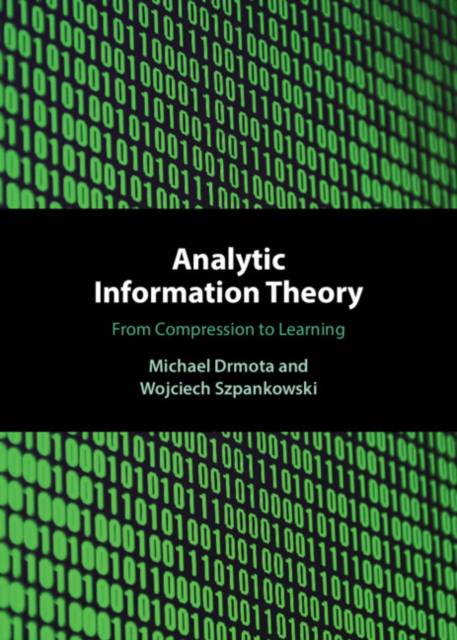
Door een staking bij bpost kan je online bestelling op dit moment iets langer onderweg zijn dan voorzien. Dringend iets nodig? Onze winkels ontvangen jou met open armen!
- Afhalen na 1 uur in een winkel met voorraad
- Gratis thuislevering in België vanaf € 30
- Ruim aanbod met 7 miljoen producten
Door een staking bij bpost kan je online bestelling op dit moment iets langer onderweg zijn dan voorzien. Dringend iets nodig? Onze winkels ontvangen jou met open armen!
- Afhalen na 1 uur in een winkel met voorraad
- Gratis thuislevering in België vanaf € 30
- Ruim aanbod met 7 miljoen producten
Zoeken
Analytic Information Theory
From Compression to Learning
Michael Drmota, Wojciech Szpankowski
Hardcover | Engels
€ 223,45
+ 446 punten
Omschrijving
Through information theory, problems of communication and compression can be precisely modeled, formulated, and analyzed, and this information can be transformed by means of algorithms. Also, learning can be viewed as compression with side information. Aimed at students and researchers, this book addresses data compression and redundancy within existing methods and central topics in theoretical data compression, demonstrating how to use tools from analytic combinatorics to discover and analyze precise behavior of source codes. It shows that to present better learnable or extractable information in its shortest description, one must understand what the information is, and then algorithmically extract it in its most compact form via an efficient compression algorithm. Part I covers fixed-to-variable codes such as Shannon and Huffman codes, variable-to-fixed codes such as Tunstall and Khodak codes, and variable-to-variable Khodak codes for known sources. Part II discusses universal source coding for memoryless, Markov, and renewal sources.
Specificaties
Betrokkenen
- Auteur(s):
- Uitgeverij:
Inhoud
- Aantal bladzijden:
- 400
- Taal:
- Engels
Eigenschappen
- Productcode (EAN):
- 9781108474443
- Verschijningsdatum:
- 7/09/2023
- Uitvoering:
- Hardcover
- Formaat:
- Genaaid
- Afmetingen:
- 178 mm x 254 mm
- Gewicht:
- 875 g

Alleen bij Standaard Boekhandel
+ 446 punten op je klantenkaart van Standaard Boekhandel
Beoordelingen
We publiceren alleen reviews die voldoen aan de voorwaarden voor reviews. Bekijk onze voorwaarden voor reviews.











